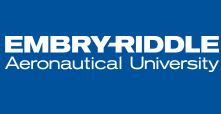
Call for Papers
Cybersecurity for Aviation & Integrated Multi-Modal Transportation
The rapid digitalization of aviation and multi-modal transportation systems (e.g., air-rail-sea-road integration) has revolutionized operational efficiency and passenger experience. However, this interconnectivity also exposes critical infrastructure to escalating cyber threats, such as ransomware attacks on air traffic control systems, data breaches in smart logistics networks, and AI-driven adversarial manipulations. These vulnerabilities threaten not only economic stability but also public safety and global supply chain resilience.
This special issue seeks to bridge the gap between theoretical research, policy frameworks, and practical implementations in cybersecurity for aviation and multi-modal systems. We invite submissions that address emerging challenges, innovative solutions, and educational strategies to secure next-generation transportation ecosystems.
Topics of Interest
Submissions may include, but are not limited to, the following themes and topics:
- Technological Innovations: AI/ML-driven threat detection and anomaly prediction in aviation systems; Blockchain for secure data sharing across multi-modal networks; Post-quantum cryptography in air traffic management; Securing IoT-enabled smart airports and autonomous vehicles.
- Human-Centric Challenges: Cybersecurity training for aviation professionals and multi-modal operators; Behavioral analysis of insider threats in critical infrastructure; Human-AI collaboration for real-time incident response.
- Policy and Governance: Global standards for cross-border cyber risk management (e.g., ICAO, IMO); Legal implications of cyber-physical attacks on integrated transport systems; Privacy-preserving frameworks for passenger data in smart mobility.
- Case Studies and Lessons Learned: Resilience analysis of recent cyber incidents (e.g., ransomware on maritime ports); Red team/blue team exercises in airport cybersecurity simulations; Best practices for cyber-physical system recovery in hybrid transportation networks.
- Educational Initiatives: Curriculum development for aviation cybersecurity degrees; Gamification of cybersecurity training in transportation education; Public awareness campaigns on cyber-safe travel behaviors
Guest Editorial Board
We are pleased to welcome these experts as Guest Editors:
Dr. Yongxin Liu
Assistant Professor of Mathematics
Embry-Riddle Aeronautical University
Dr. Hongyun Chen
Associate Professor of Civil Engineering
Embry-Riddle Aeronautical University
Dr. Lu Gao
Associate Professor of Construction Management
University of Houston
Dr. Yunpeng Zhang
Associate Professor of Computer Information Systems and Information Systems Security
University of Houston
Important Dates
- Manuscript Submission Deadline: December 15th 2025
- Notification of Acceptance: March 15th 2026
- Publication Date: June 2026
Submission Guidelines
Please see the journal’s Submission Guide and Policies for instructions and select Cybersecurity as the Document Type when submitting your article.

